Poems
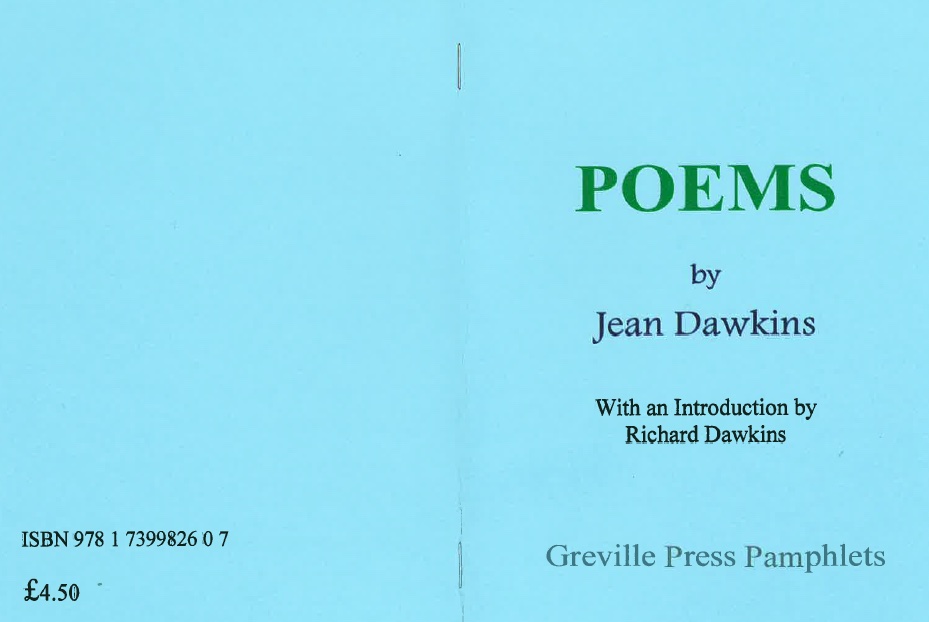
Introduction by Richard Dawkins
My mother Jean Dawkins, née Ladner, would never have guessed that she might become a posthumously published poet. She died in 2019 aged 102. A year or so later, Anthony Grayling noticed one of her poems quoted in my autobiography, and he wrote to ask me if there were more. My sister Sarah Kettlewell and I searched through her papers and found the poems now published by Greville Press Pamphlets.
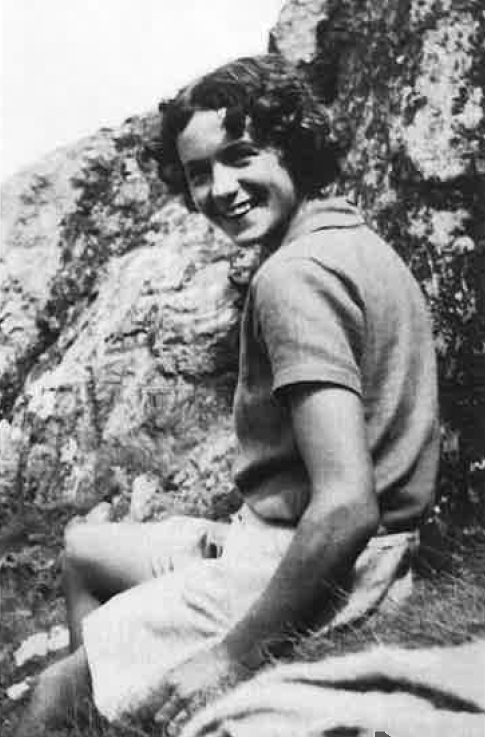
Jean Mary Vyvyan Ladner was born in Ceylon in 1916 where her engineer father, AW Ladner, was a wartime naval officer engaged in setting up a radio station. After the war the family moved to Essex where Jean’s father was employed by the Marconi company in Chelmsford. They lived briefly in Chelmsford itself. Jean was evidently a mischievous child with a sense of humour. In old age she painted a picture from memory of herself as a child using a hosepipe to douse the Salvation Army singing on the other side of the high garden wall. They moved to a lovely Tudor longhouse, Water Hall, in Little Baddow outside the town. It was at Water Hall, in her early twenties, that Jean wrote the first of the poems collected here, a particular favourite of mine.
It was in Little Baddow around this time that she met my father, whose parents had retired there from Burma. During their engagement, while separated, they had a regular postal exchange of favourite poems by a variety of authors, copied out by hand for each other. This eventually amounted to a substantial personal anthology of some 200 poems which we still possess, with Jean’s own poems interspersed among them. The couple’s shared tastes included AE Housman, Rupert Brooke, “AE”, James Elroy Flecker, Richard Aldington, Roy Campbell, DH Lawrence, WH Davies, RL Stevenson, Edna St Vincent Millay, and lots of WB Yeats. Not much from earlier centuries.
Jean and John were re-united in Nyasaland where he was just beginning his career as an agricultural officer. Almost immediately, John was called up to join the King’s African Rifles, fighting the Italians in Abyssinia, but I think the couple were conscious that they were having a comparatively easy war, away from the worst of the action. By contrast, Jean was obviously moved by the contemplation of jackboots goose-stepping over the fields of France, and her poem, “On the Invasion of France, 1940, is a hymn of hope for that beautiful country.
In 1946, a telegram arrived in Nyasaland informing John that a distant cousin, of whose existence he was unaware, had bequeathed to him the farm in Oxfordshire which had been in the Dawkins family since 1726. Three years later Jean and John left Africa for good and settled down to a hard working life running the farm where they lived out happy, productive and very long lives.
My other favourite poem, “Bunch” is the next one in the collection, on the death of a beloved dog, Jean’s devoted companion of many years on the farm and on windswept visits to the tiny cottage that my parents bought in the far west of Ireland. I hold the view that one can mourn a dog with the same deep sorrow as for a close human relative. When we organized readings for our mother’s funeral, I was supposed to recite the Bunch poem but found myself incapable of doing so, and had to ask the humanist officiant to read it for me.
The next poem, “Death of a Cowman” continues the theme of mourning. Cecil had for many years looked after our pedigree herd of Jersey cows. His devotion to them was deeper than was required by the job and this is reflected in the poem, written shortly after his death from cancer. Never married, he cut a somewhat lonely figure (“I’m all right till I take me cap off” – he was prematurely bald). I think Jean was touched by this and by his unfulfilled longing for a farm of his own.
The final poem, “When night time came” is somewhat mysterious to me but I like its Kipling or Chesterton-style rhythm. I was not aware of the poem until after her death, and regret that I no longer have the opportunity to talk to her about its meaning.
Jean Dawkins was a talented painter, trained at the Chelsea College of Art and Design, and I think her artist’s eye is in evidence in these poems. As it happens they are mostly sad, but she was not a noticeably sad person. Even when clouds were dark there was always, in her words, “a subdued feeling of sunlight”. Perhaps poetry was a way of responding to occasional sadness. What I remember is that she had the gift to make those around her happy. She was much loved by her children, grandchildren and great grandchildren, but also by friends, farm-workers and local villagers down many years. In her old age she was an inspiration to all of us, relishing her memories and constantly repeating how fortunate she was, even in her last years of bedridden widowhood.
I am most grateful to Anthony Grayling for spotting her poetic talent and taking the trouble to bring this small collection to fruition.
Richard Dawkins
Water Hall, 1938
I can lean from my window
And feel the wind about my face
Like water flowing dark and cold.
The little lights of houses shine
In level lines, and mark where towns
Lie huddled close against the Earth.
And all about the wind blows by,
Cold song of winter on its breath.
The Great Bear stands upon his head
His paws among the apple boughs
That dark against a darker sky
Wave in the wind and tap their twigs
With little sounds forlorn and sad
Within the night’s dark emptiness.
On the Invasion of France, 1940
The lilies broken down in France
Their petals trodden with the dust
Will spring again, their scent to spill,
Their strength to stand, their flowers to dance.
Free in the sun and wind and rain,
Those proud white flowers will come again,
Pale, lovely flowers of France.
Their ancient fragrance handed down
Through the rich living loam of France,
The pollen golden, blown and free –
A thousand years of lilies held
Within its breath, just bring again
The quiet flame of flowering France
To blossom in the Sun and rain.
Bunch
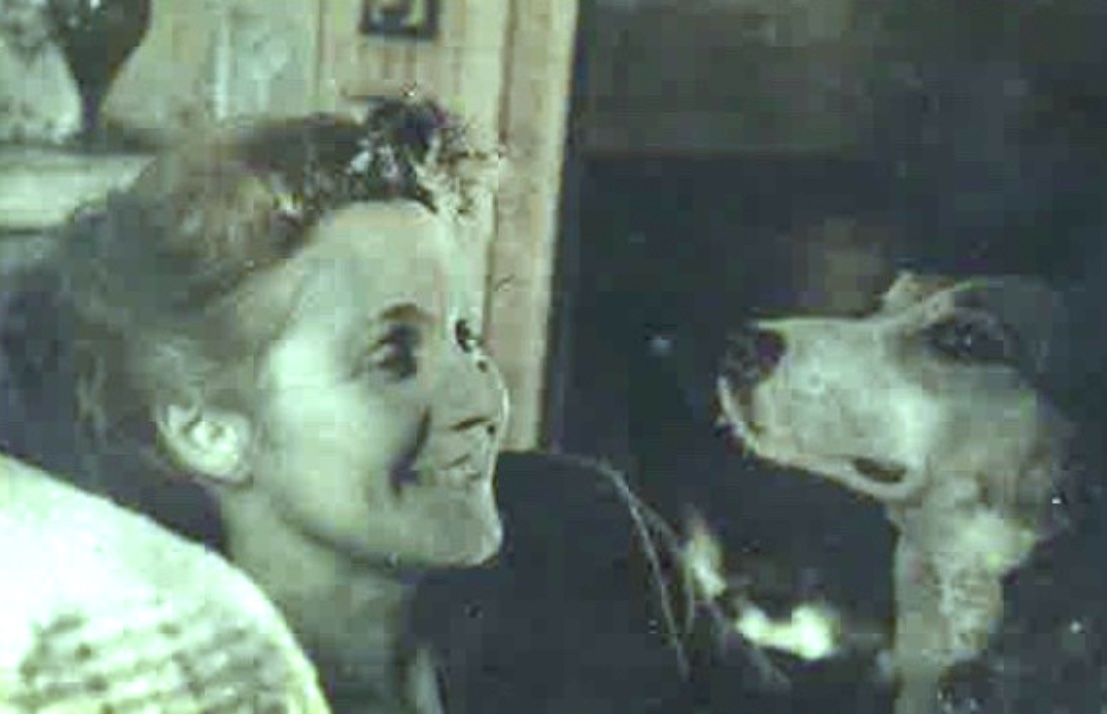
Our old warrior dog is dead
That gallant heart will fight no more,
And empty stretch the days ahead
As empty as the kitchen floor.
Dear little ghost of happiness
Who lopes beside me down the years,
No dog of flesh and blood will take
Your place nor ever stem the tears
That well unbidden from the heart.
For you were very part of me
And all the fields and all the ways
Down woodland ride and open hill
Are empty places now for me.
You are not there.
You are not there.
Death of a Cowman
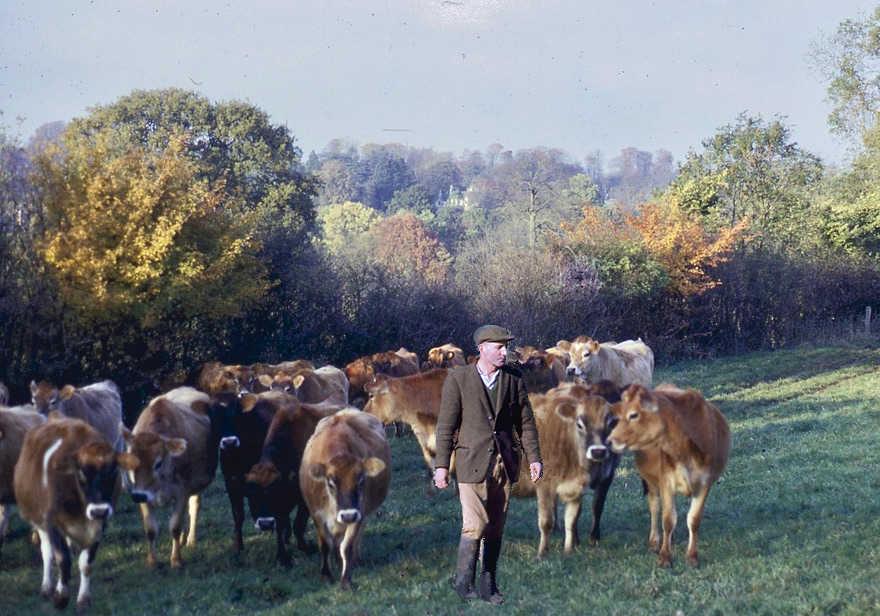
The “green pastures” psalm we sang for you
And tears came blinding from the heart;
For there beside the quiet streams
One saw your spare lone figure pass
Without your cows. And all that grass
So green to waste. No herd have you
In those quiet meadow-lands of death,
To follow where you lead.
Or have those cows you loved and knew
Who earlier trod the ways of death
Been joined the other side with you?
I’d like to think their gentle ways
Are still with yours.
Your loneliness in death would be
Greater than in life you knew,
With not a single cow to pass
Beside the waters quiet with you.
Now you are there, and evermore will stay
One with the land you loved
And longed in life to own.
Dust of its dust,
No man can part you now
From that high hill where in your youth you dreamed,
Proud as a boy can be with strength and hope and plans.
Life cheated you of all, and dreams were nought,
But death has mended that.
And now the wind will blow
Around your farm for evermore,
Your spirit mingle with the rain,
The wind, the snow, the sun, the storm.
That hill is yours, and you are there,
Part of its strength, though ages pass.
When Night Time Came
When night came, and the small lamp shone
Bravely and warmly in the long dark room,
And the casements stood wide to the night,
To the sweetness of the garden and the shining of the stars
To the silence and the stillness and the paleness of the flowers -
And the light of the lamp was so small in the night.
I shut my eyes and the music came stealing
And pouring softly through the silent dark.
And my heart stood still for the terror of the song,
For the sadness of its dying and the swiftness of its fall.
For the things I could not know and that no man understands
And it fills the night with silence, and the music of my heart.
In the changeless dark when the low light came
Under my lashes from the shining lamp,
I saw the shadows swift, as the music galloped by,
Of the greatness of old cities, and the warming of the sun
And the flowing of wide rivers and the stillness of the plain
And centuries lay sleeping in the music of my heart.
I saw pale skies where clouds sped by
Flying and sailing through the sunlit air
And I saw tall ships like shadows on the sea
In the crying of the music and the silent unknown song,
In the singing through the darkness that lay breathless on my soul.
And then the music ended and I saw the lamplight shine.
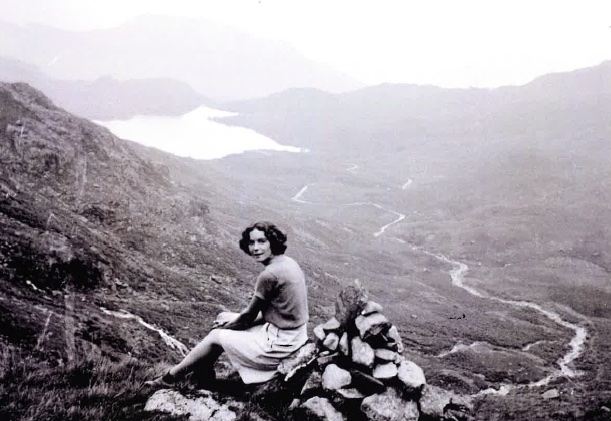
Next article
On Science and Scientists: A Conversation with Neil deGrasse Tyson
Previous article
Jeeves and the Greatest Show on Earth